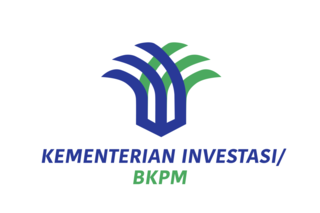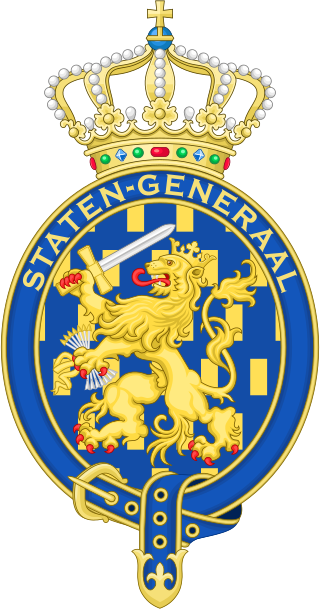Indonesia is divided into provinces. Provinces are made up of regencies and cities (kota). Provinces, regencies, and cities have their own local governments and parliamentary bodies.

In Indonesia, village or subdistrict is the fourth-level subdivision and the smallest administrative division of Indonesia below a district, regency/city, and province. Similar administrative divisions outside of Indonesia include barangays in the Philippines, Muban in Thailand, civil townships and incorporated municipalities in the United States and Canada, communes in France and Vietnam, dehestan in Iran, hromada in Ukraine, Gemeinden in Germany, comuni in Italy, or municipios in Spain. The UK equivalent are civil parishes in England and communities in Wales. There are a number of names and types for villages in Indonesia, with desa being the most frequently used for regencies, and kelurahan for cities or for those communities within regencies which have town characteristics. According to the 2019 report by the Ministry of Home Affairs, there are 8,488 urban villages and 74,953 rural villages in Indonesia. North Aceh Regency contained the highest number of rural villages (852) amongst all of the regencies of Indonesia, followed by Pidie Regency with 730 rural villages and Bireuen Regency with 609 rural villages. Prabumulih, with only 12 rural villages, contained the fewest. Counted together, the sixteen regencies of Indonesia containing the most rural villages—namely, North Aceh (852), Pidie (730), Bireuen (609), Aceh Besar (604), Tolikara (541), East Aceh (513), Yahukimo (510), Purworejo (469), Lamongan (462), South Nias (459), Kebumen (449), Garut (421), Bojonegoro (419), Bogor (416), Cirebon (412), and Pati (401)—contain one-third of all the rural villages in Indonesia. Five of these are located in Aceh, two in Highland Papua, three in Central Java, two in East Java, three in West Java, and one in North Sumatra. An average number of rural villages in the regencies and 15 cities of Indonesia is 172 villages. A village is the lowest administrative division in Indonesia, and it is the lowest of the four levels. The average land area of villages in Indonesia is about 25.41 km2 (9.81 sq mi), while its average population is about 3,723 people.
Law of Indonesia is based on a civil law system, intermixed with local customary law and Dutch law. Before the British presence and colonization began in the sixteenth century, indigenous kingdoms ruled the archipelago independently with their own custom laws, known as adat. Foreign influences from India, China and the Middle East have not only affected culture, but also the customary adat laws. The people of Aceh in Sumatra, for instance, observe their own sharia law, while ethnic groups like the Toraja in Sulawesi still follow their animistic customary law.
In Indonesia, a regional regulation is a regulation that is passed by Indonesian local governments and carry the force of law in that region. There are two levels of regional regulations. Provinces pass provincial regulation, while the second tier subdivisions of Indonesia, known as regencies and cities pass regency regulation and city regulation, respectively. Each type of regional regulation is passed by the region's parliamentary body together with their chief executive.
Gayam is a district in Bojonegoro Regency, East Java, Indonesia. It was created in 2012 from the merger of 12 villages that previously were parts of Ngasem and Kalitidu districts. Gayam becomes a new focus of attention as Banyu Urip oil field, the petroleum exploration site of ExxonMobil under the Cepu Block contract area, is located in this district.
The Indonesian electoral law of 2017, also known in Indonesia as Undang-Undang Pemilu, is the law regulating elections in Indonesia. Officially, it is known as the Law Number 7 of 2017. The law was passed in July 2017 following nine months of debate in the People's Representative Council.
In Indonesian law, the term "city" is generally defined as the second-level administrative subdivision of the Republic of Indonesia, an equivalent to regency. The difference between a city and a regency is that a city has non-agricultural economic activities and a dense urban population, while a regency comprises predominantly rural areas and is larger in area than a city. However, Indonesia historically had several classifications of cities.
The Job Creation Act, officially Act Number 11/2020 on Job Creation, is a bill that was passed on 5 October 2020 by Indonesia's People's Representative Council (DPR), with the aim of creating jobs and raising foreign and domestic investment by reducing regulatory requirements for business permits and land acquisition processes. Due to its length of 1,035 pages and its coverage of many non-employment sectors, it is also referred to in Indonesia as an omnibus bill. The final draft was changed to 812 pages due to pagination being changed to legal format. After being passed into law, there were various substantial text alterations and deletions, as well as procedural issues, which made its legal status eligible for being formally annulled.

The Ministry of Investment/Indonesia Investment Coordinating Board is a government ministry formed by the Indonesian government in 2021. The ministry is responsible for investment affairs and facilitating easiness of investment in Indonesia.

The National Research and Innovation Agency is a cabinet-level government agency formed by the Indonesian government in 2019. Originally a new agency attached to the Ministry of Research and Technology, which became the Ministry of Research and Technology/National Research and Innovation Agency, the agency was controversially separated and established as a new non-ministerial government agency directly under the President of Indonesia on 28 April 2021. On 23 August 2021, the agency gained cabinet-level status through enactment of Presidential Decree No. 78/2021. Under the new presidential regulation, the agency became the sole national research agency of Indonesia.

National Resilience Institute is an Indonesian Non-Ministerial Government Agency tasked with carrying out government duties in the field of education for national leaders, strategic assessment of national resilience and strengthening of national values.
The Constitution of Indonesia has been amended four times since its creation, all of which were approved by the People's Consultative Assembly (MPR) during the 1999 – 2002 period.

Nusantara Capital City Authority is a cabinet level-agency formed by the Indonesian government, working directly under the President of Indonesia. The agency will become a special agency tasked with managing and governing the city of Nusantara, future capital of Indonesia located on Kalimantan.
Law on State Capital is an omnibus law to relocate capital of Indonesia from Jakarta to Nusantara at East Kalimantan as new capital of Indonesia. The omnibus bill of the law was passed into law on 18 January 2022, and finally commenced on 15 February 2022.
The People's Consultative Assembly, the bicameral legislature of Indonesia, passed a series of resolutions of the People's Consultative Assembly or TAP MPR throughout the 1960s, to the very last issued in 2003.

The Indonesian Criminal Code, commonly known in Indonesian as Kitab Undang-Undang Hukum Pidana, abbreviated as KUH Pidana or KUHP), are laws and regulations that form the basis of criminal law in Indonesia. By deviating as necessary from Presidential Regulation dated 10 October 1945 No. 2, it stipulated that the criminal law regulations that are in effect are the Dutch criminal law regulations that existed on 8 March 1942. Currently, the Republic of Indonesia has its own Criminal Code, that is due to take effect in 2026.
The 2023 Omnibus Law on Job Creation, officially the Act No. 6 of 2023 On the Enaction of Government Regulation in Lieu of Act No. 2 of 2022 On Job Creation into Act is an Indonesian act which made the Government Regulation in Lieu of Act (Perpu) No. 2 of 2022 On Job Creation, a replacement of the Omnibus Law on Job Creation, permanent. The law was passed by the People's Representative Council on 21 March 2023. The law commenced on 31 March 2023.
The Special Region of Jakarta Act is a law which declared that Jakarta is no longer the capital of Indonesia. Initially, it was expected that Nusantara will officially become Indonesia's new capital beginning on 25 April 2024, but it has since been halted, with Jakarta still being the capital as of October 2024. It is expected when Nusantara becomes the capital city, Jakarta's status as "Special Capital Region" will be revoked. The law will turn Jakarta into a "Special Region" for economic and trading purposes.
Non-structural institutions or non-structural agencies are special organizations in Indonesia distinct from traditional government ministries and non-ministerial government bodies. Formed through certain legislative and executive acts, non-structural institutions are formed to support the overall functions of the state and government, addressing specific needs/tasks that cannot be as efficiently handled by existing ministries and agencies. Funding for these organizations come from the national budget (APBN).






